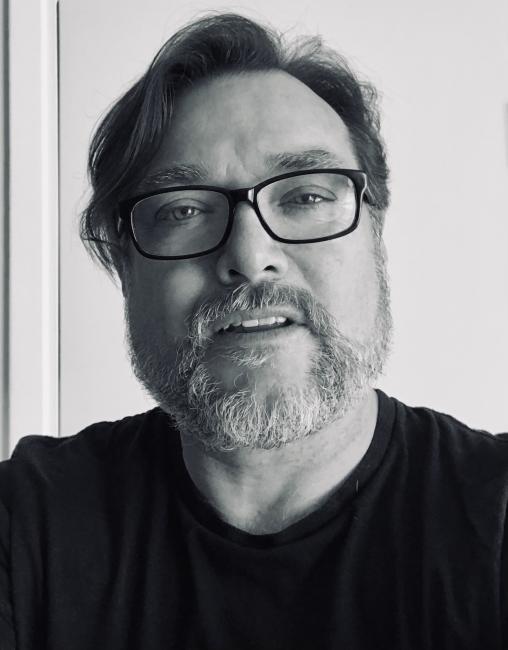Everyday life reflected in modern TV shows
2022-01-28The realities we see in TV shows are becoming more and more similar to our own reality. John Lynch is trying to describe the elements that weave TV shows and everyday life together.
Actors used to move from TV to the big screen. Today, it’s the other way around. The streaming services are attractive for actors, with big budgets and the possibility of performing a role over several seasons. Ad-free subscriptions make viewers stick around longer, which makes them identify more and more with what they are watching.
John Lynch, Senior Lecturer in Media and Communication Studies, have written the book Between Habit and Thought in New TV Serial Drama, where he critically examines the strategies that show runners use in order to navigate within a dynamic shaped by the new spirit of capitalism.
- An increasing number of people recognise that TV shows in many cases are of at least equal quality as feature films, says John Lynch. With my research, I wanted to examine the fact that top actors in Hollywood, as well as directors, screenwriters, cinematographers and, well, basically everyone have switched side to streaming TV dramas.
Traditionally, Hollywood has been the height of an acting career, while television has been much lower in the hierarchy. This is not the case anymore. One current example is the actress Kate Winslet. In the TV show Mare of Easttown, she plays the part of the police detective Mare Sheehan over seven episodes.
- I wanted to examine and try to describe how the different elements that shape quality TV shows are woven together. I found that TV shows have evolved to a very close description of the very lives we live. If we consider how the technology works today, they go hand in hand with what we are watching. We are always working, we are always in contact with other people, we are always checking social media. What TV dramas are doing is that they are combining the key parts of everyday life, work and home life. The separation that was present before has been lost and I talk about being a part of this world and how it relates to our own existence.
It is impossible to follow everything that is produced on the various platforms that the social media algorithms are trying to make us aware about. In order to exemplify, John Lynch has chosen to focus on five TV shows, all with different meanings:
Mr Robot
The hacker culture, technology and surveillance. All aspects of our lives and how they can be manipulated are represented here. What sets Mr Robot apart from similar shows is that it depicts this subject better than any other.
Billions
A melodrama that depicts the relationship between capitalists and the laws that apply to all of us, as well as capitalism’s drive to always make more and more money. All our lives are affected by this.
The Leftovers
A very complex TV drama that challenges the viewer in many ways. Many people have watched the first season, but few have watched the rest. The show is about faith and issues related to religion. Once again, fundamental questions that affect many people.
Rectify
Justice is the common thread here. An overlooked show that I think more people should discover. Trauma and suffering are also central themes in Rectify.
Westworld
Questions about what it means to be human in a post-human, ultra-technological world, are central here.
- What makes these examples such successful TV dramas is how they really try to answer questions related to real life, says John Lynch. There are no simple answers of easy solutions, and the viewers are both entertained as well as challenged by, for example, how environmental issues are brought up. There are always constant problems, just like in real life. My analysis concerns how people producing these TV dramas are visually constructing their worlds, and how technology is helping to frame them.


